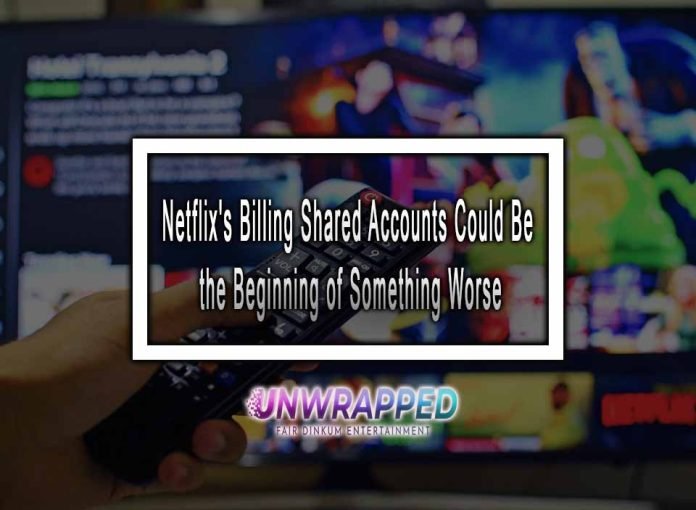We’ll attempt to figure out what’s driving Netflix’s fee on account-sharing customers in this piece. Could Be the Beginning of Something Worse
The celebration is finished, guys! Netflix will begin charging subscribers who share their accounts with persons who do not reside in the same household. Always keep in mind that “each LAR must pay for its own password,” not each USER, as stated on the platform’s terms of service. And, of course, many individuals are ready to either desert the platform or begin plotting bank robberies (virtual as the physical ones are closing).
But, since one movement may always draw others, what is currently wrong can grow worse. No firm can make a message without tying a knot, and Netflix’s choice may encourage other companies to follow suit. Not to mention additional initiatives that might increase the bill’s cost.
A triple threat
It’s difficult to fathom what goes on in the minds of Netflix execs.
Or, to put it another way, it’s fairly simple if you think about it: money, money, money.
It isn’t just that, however. Some countermeasures were implemented, such as lower-cost programmes for usage just on smartphones or advertising in lower-cost monthly fees.
The changes at Netflix are being driven by three factors:
- High production costs: Netflix currently has a budget of at least US$ 15 billion per year, up from “just” US$ 3 billion in 2014.
- A growth that slows down: Netflix’s user base grew at a rate of 30 percent to 60 percent each year in its early years of streaming. Today, the platform’s growth potential is substantially less, which is to be expected in such a competitive sector.
- The absence of content: Even if Netflix creates new shows on a large scale, it can’t compete with the likes of Warner Bros., Paramount, Disney, Universal, and other studios, who have decades of material under their belts.
A Nightmare for Netflix
Netflix is having a difficult time transitioning from a video-on-demand corporation to an entertainment behemoth. And, when costs rise to satisfy the transition’s fundamental demands, the likelihood of subscription cancellations rises year after year.
Sharing a Netflix account with others is the greatest option for a typical, non-wealthy individual to keep their subscription active. This is true all around the globe, where 90 percent of the population earns insufficient wages.
Netflix’s plan to tax account-sharing customers might be the first of many steps it takes to decrease its present losses, such as restricting the number of registered devices or lowering the number of profiles per account.
And every choice Netflix takes in the future to try to stem the tide of money may (and will) irritate (and irritate) its subscribers. Whatever the case may be.
Netflix has made us uneasy, and that is the issue. For a long time, the platform’s primary differentiator was offering a large collection of series and movies at a reasonable price. Today, it’s simply another one that performs the same thing as the others, but at a much higher price. Why would you remain at such a service?
Also, Read : The Best Money Transfer App for International Travel
Fun Fact
What is Netflix doing about sharing accounts?
In March 2021, Netflix said it would start occasionally prompting users to verify their credentials to continue using their accounts, but the feature was given a limited rollout and didn’t become permanent — at least, not yet. Pachter notes the challenge of cracking down on password sharing.










